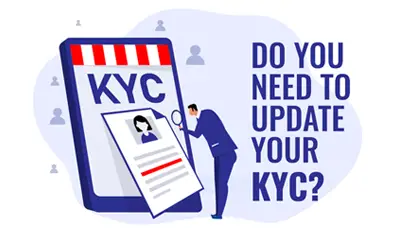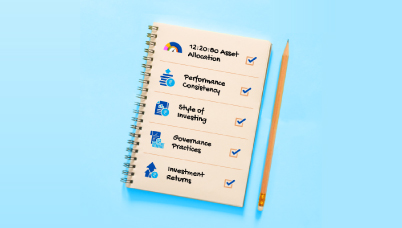12 Questions before investing in Mutual Funds
Posted On Monday, Feb 16, 2015
And this applies to investments and personal finance too. Asking the right questions to your advisor, relationship manager and to yourself, will help you take the right path for investments and stay on it after long. Here is a compilation of 12 questions to ask about mutual fund investments.
For choosing the fund type and the AMC
1. Does this investment match my investment goals? Why is this investment suitable for me?
Outline your investment goals with the assistance of a financial advisor. Then it would be easier to find the best suited fund type.
2. How will this investment make money?
In other words you need to know what must happen for the investment to increase in value. This is broadly determined by the type of assets in the fund. In equity funds it is rise in market value of the concerned shares that give you returns whereas in debt funds it is fall in interest rates that pays.
3. How liquid is this investment? How easy would it be to sell if I needed my money right away?
Some investments have lock-in periods during which it cannot be sold, for example ELSS, RGESS investments. Others that do not have lock-in periods would have exit loads. Check all these parameters before going for the type of fund.
4. How long has the AMC been in business? Is its management experienced? Have they made money for investors before?
A background check of the Asset Management Company (AMC) is absolutely recommended. Know who the sponsor of the AMC is. Is the AMC being mainly an asset gatherer (simply interested in making money for them by launching multiple clone funds, adding to confusion) or a good asset manager? How are majority of their schemes performing? Go a step ahead and find out if the AMC is making profits; this is essential for it to sustain.
While selecting the fund
5. How has this fund performed over the long run? Where can I get an independent evaluation of this fund?
Factsheets of mutual fund schemes would show you their past performance. Presently as per SEBI norms factsheets display 1 year returns for 3 consecutive periods, along with returns of the fund’s benchmark, and returns since inception of the fund. However it is important to check performance over long periods like 5 years or so, for investments in equity, bond and hybrid schemes.
Independent fund research companies evaluate schemes on risk-return parameters, and in comparison with other schemes of the same type. They can supplement your decision-making. However we’d like to stress that past returns should not form the sole basis of selecting a scheme.
6. What type of securities does the fund hold? How often does the portfolio change?
Well, as an investor you may not be expected to know the nitty-gritties of the individual stocks or debt papers in the portfolio; (because then you might as well have invested in them directly!) But you must certainly have the knowledge of the class of assets the portfolio holds. Is it going to be predominantly equities, or debt, or gold? Or will it have a mixture of these?
The offer documents of the scheme (SID, KIM) will have details of the intended type of securities the scheme would invest in, and to what extent. The product label also serves as a ‘quick look’ for this. Unfortunately not all funds abide by the committed investment pattern; you can take a look at the factsheets once in a while to know current portfolio allocation of your funds.
7. What are the total fees to purchase, maintain, and sell investment in this scheme?
Entry loads, the one-time fee charged while purchasing investments are now a thing of the past. Instead, for investments bought through distributors a small transaction fee is charged. Mutual funds charge an ongoing fee known as expense ratio, for managing investments. This is actually deducted while computing a scheme’s asset value and hence is incorporated in the NAV. The other fee in mutual fund investments is exit load which is applicable only for investments redeemed before the stipulated time period.
Today there are ways to reduce or avoid some of the fees that you’ll pay, such as by purchasing the investment directly from the AMC. This allows you to skip the transaction charge and lower the expense ratio.
8. What type of taxes will I be liable to pay for investments and gains?
Depending on the type of assets, holding period and the chosen investment option (growth, dividend) the tax applicability would differ. Broadly speaking equities are treated more favourably than debt and long term investments are taxed lighter than short term ones.
9. Am I aware of the grievance redressal and dispute resolution policies and procedure followed by the fund house?
Yes, stay informed of this vital detail too, while hoping you never have to use it!?
Tracking your investments
10. How frequently do I get statements? Do I understand what the statement tells me?
Apart from the statements sent periodically Quantum investors can track their investments, generate capital gains statement, and trigger account statement whenever required on the Invest Online portal.
11. Is the return on my investment meeting my expectations and goals? Is this investment performing as I was led to believe?
Hopefully as long as your choice is an informed one, you wouldn’t be disappointed on this one.
12. How much money will I get back if I sell my investment today?
Your investment value is linked to the NAV of the scheme. The rough cut figure works out as NAV x no. of units you hold (less exit load if applicable).
So keep these questions in the back of your mind and present them the next time you make an investment, and apply them for your current investments.
Because another quote goes, “Who questions much, shall learn much, and retain much." Do consult your financial advisor before taking any investment decisions.
The views expressed here in this article are for general information and reading purpose only and do not constitute any guidelines and recommendations on any course of action to be followed by the reader. The views are not meant to serve as a professional guide / investment advice / intended to be an offer or solicitation for the purchase or sale of any financial product or instrument or mutual fund units for the reader. The article has been prepared on the basis of publicly available information, internally developed data and other sources believed to be reliable. Whilst no action has been solicited based upon the information provided herein, due care has been taken to ensure that the facts are accurate and views given are fair and reasonable as on date. Readers of this article should rely on information/data arising out of their own investigations and advised to seek independent professional advice and arrive at an informed decision before making any investments.
Mutual fund investments are subject to market risks read all scheme related documents carefully.
Related Posts
-

Do You Need to Update Your KYC/Modify KYC?
Posted On Friday, Apr 26, 2024
New KYC Regulation Effective April 1st 2024
Read More -

Are You Stuck in the Past or Ready for a Secure Future?
Posted On Wednesday, Jun 29, 2022
The ever-growing number of mutual fund schemes on offer has made it challenging for investors to select the best and most suitable one.
Read More -

Received an Increment? Step-up Your SIPs
Posted On Wednesday, Jun 01, 2022
For instance, let’s assume that you have registered for a monthly SIP of Rs 5,000 for a 10-year period and later on try to step-up the SIP at an annual frequency, say by Rs 500. In the first year...
Read More



